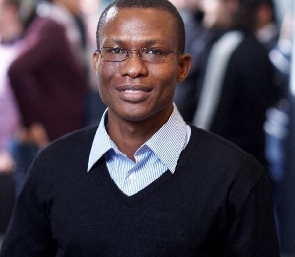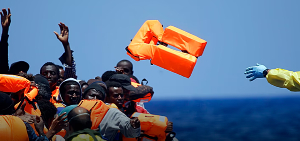Chief Economist for Ghana at the International Growth Centre, James Dzansi, has dispelled government’s assertion that the current economic crisis was due to external factors resulting from the COVID-19 pandemic and the Russia-Ukraine war.
He argues that Ghana was already “walking on thin ice but not sinking” even before the pandemic hit with government resulting to heavy borrowing which has culminated in huge debt load on the country.
Speaking in an interview with the Financial Times, Mr Dzansi who works with the Oxford University and London School of Economics-backed think-tank said the governing New Patriotic Party resorted to the borrowing habit back in 2020 resulting in overspending in an election year.
“The government saw an opportunity in leveraging the COVID-19 pandemic to engage in reckless expenditure in view of the 2020 election. You warm the temperature and the thin ice broke,” he told FT.
Meanwhile, Ghana’s debt situation as a percentage of GDP increased from 62.7 percent in 2020 to more than 100 percent in 2022, according to Finance Minister, Ken Ofori-Atta.
To mitigate the crisis, Ghana on July 1, 2022, engaged the IMF for assistance and in December 2022, the country secured a Staff-Level Agreement with the Fund with government launching the Domestic Debt Exchange Programme (DDEP) to restructure its debt.
On Friday, May 12, 2023, Ghana’s official creditors consisting of China and the Paris Club provided the necessary financing assurances needed to pave the way for the country’s US$3 billion request from the IMF.
Watch the latest edition of BizTech and Biz Headlines below:
MA/ESA
Business News of Monday, 15 May 2023
Source: www.ghanaweb.com













